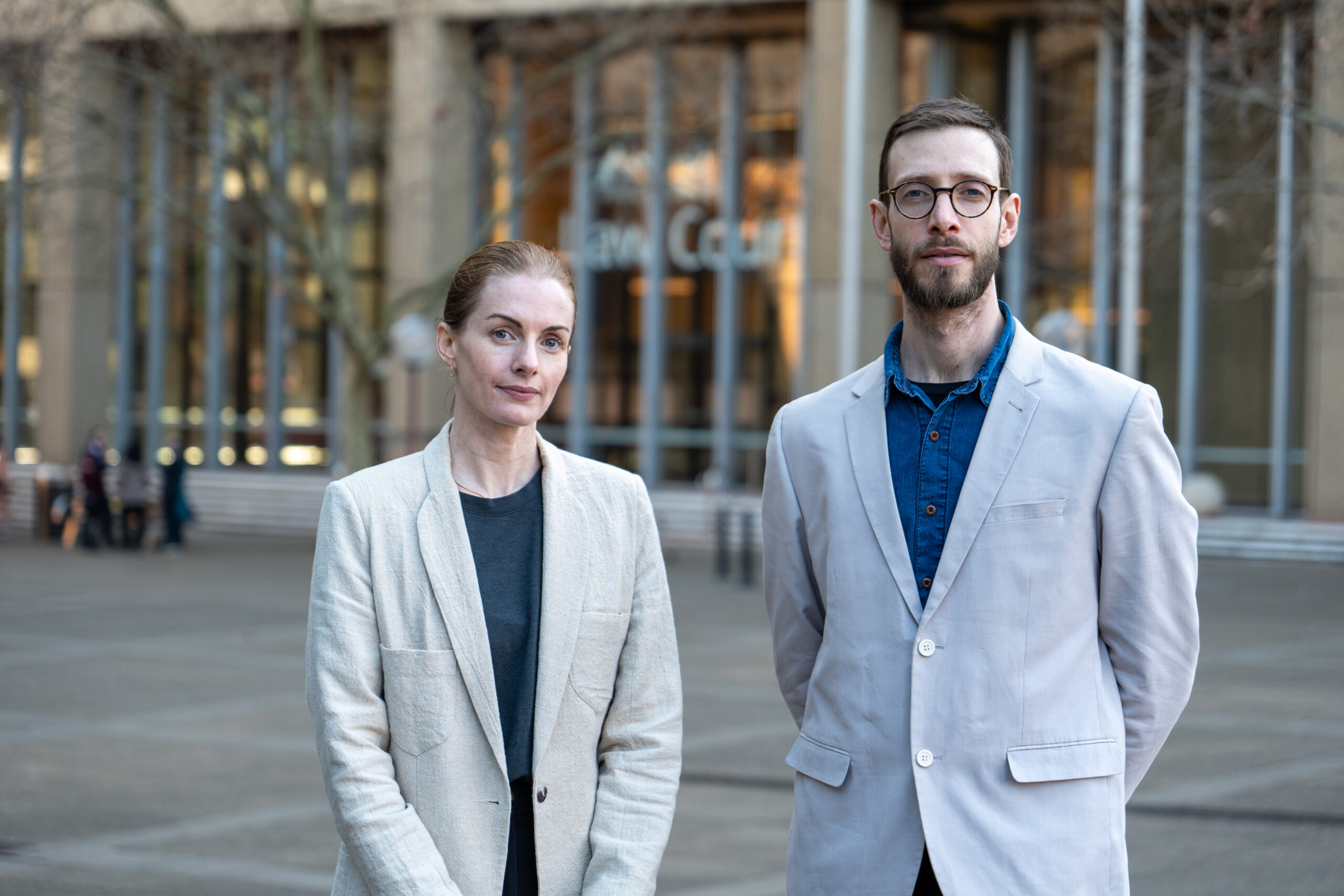AU$57bn Rest superannuation fund agrees to settle ground-breaking climate risk litigation and pledges to reach net zero emissions by 2050
Monday 2 November, 2020: Following more than two years of legal proceedings, Retail Employees Superannuation Trust (Rest) and 25-year-old member, Mark McVeigh, have agreed to an 11th hour settlement of litigation in respect of Rest’s handling of climate change risk.
The settlement can be accessed here.
With the trial due to begin on 2 November, the AU$57bn superfund agreed to settle, stating ‘that climate change is a material, direct and current financial risk to the superannuation fund,’ and ‘that Rest, as a superannuation trustee, considers that it is important to actively identify and manage these issues.’
In addition, Rest will align its portfolio to net zero by 2050 and report against the Task Force on Climate-related Financial Disclosures (TCFD). The fund will conduct scenario analysis to inform its investment strategy and strategic asset allocation, disclose its entire portfolio holdings, and advocate investee companies to comply with the goals of the Paris Agreement.
“Today’s settlement gives me, and Rest’s almost two million members, the reassurance that we need to know that our retirement savings will be invested responsibly in the face of the climate crisis,” said 25-year old plaintiff Mark McVeigh.
“This case is a ground-breaking recognition of the material financial risk that climate change poses to the economy and society, and the role that superfunds have in managing it. I hope it will go some way to catalysing the Australian super fund industry, which, with almost three trillion dollars under management, has the potential to make or break our climate response.”
In 2018 McVeigh filed suit against Rest alleging the trustee violated the Corporations Act 2001 by failing to provide information related to climate change business risks and any plans to address those risks. The case was filed in the Federal Court of Australia.
Later in 2018 the case was amended to allege the fund’s trustee failed to act with care, skill and diligence when investing for McVeigh, and failed to act in his best interests, by not properly considering the risks climate change poses to the fund’s investments. At the time Rest told Mark that climate change was one of many ESG risks that its investment managers might take into account.
“The implications of this case are far-reaching for investors and for the climate,” said David Barnden, Principal and Director of Equity Generation Lawyers.
“This marks the first time a major Australian super fund has agreed to settle litigation about the material financial risk of climate change and what needs to be done to protect members. It is clear that the bucks stops with board members, and managing climate risk cannot be delegated away.”
“This outcome should represent a significant shift in the market’s willingness to tackle climate risk—a shift which should set a clear precedent for the industry in Australia, and also pension funds around the world.”
About the case
In 2018 Mark McVeigh, then 23-year-old Australian pension fund member, filed suit against Rest alleging that the trustee violated the Corporations Act 2001 by failing to provide information related to climate change business risks and any plans to address those risks. The case was filed in the Federal Court of Australia.
Later in 2018 the case was amended to allege Rest’s trustee failed to act with care, skill and diligence when investing for McVeigh, and failed to act in his best interests, by not properly considering the risks climate change poses to the fund’s investments.
To satisfy the trustee’s duties, the plaintiff claimed the trustee must seek information from its investment managers about climate risks and comply with the recommendations of the Task Force on Climate-related Financial Disclosures (TCFD).
McVeigh sought declarations from the court to establish Rest’s trustee breached its duty. The claim did not allege financial loss.
The case built upon a landmark 2017 public opinion by Noel Hutley SC, one of Australia’s most respected commercial barristers and president of the Australian Bar Association, and James Mack.
They advised that trustees and trustee directors must do three things in the face of climate change:
1) Inform themselves about the physical and transition impacts of climate change;
2) Consider how those factors will impact the performance of the fund;
3) Act with care, skill and diligence to address the risks.
Australia’s peak financial regulators, APRA and ASIC, as well as the Reserve Bank of Australia, have sent a clear message that businesses need to take the foreseeable risks of climate change seriously.
International significance
Like superannuation funds in Australia, pension funds and sovereign wealth funds across the world have fiduciary duties. They must act with care, skill and diligence. They also must act in the best interest of beneficiaries.
Although the proceedings were in Australia, the case has been highly influential on how global funds manage climate risk. Internationally, both companies and asset owners are facing increased scrutiny from both internal and external stakeholders in relation to their climate change policy and risk reporting. To date, the majority of climate change litigation has occurred in the United States (US), followed by Australia, the United Kingdom (UK), the European Union, New Zealand, Canada and Spain.
For interviews, please contact James Lorenz on +61 (0) 400 376 021
History of the case
The origins of the case stretch back to August 2017 when Mark McVeigh, then a 22 year old ecology student from Brisbane, first asked for information from his superannuation fund, REST, about how it managed financial risks caused by climate change.
Superannuation
REST is an Australian industry superannuation fund that manages $60 billion of assets (US 40 billion). It is the 11th largest fund in Australia and 124th largest in the world. The fund has 1.7 million members.
The superannuation industry in Australia is designed to provide benefits for workers in retirement. Employers must pay 9.5% of workers’ wages into a fund.
Combined, Australia’s superannuation industry is the fourth largest asset pool in the world. It is worth $3 trillion.
Trustees of pension schemes around the world perform similar functions to Australian superannuation trustees. They also owe similar fiduciary obligations to fund beneficiaries.
A fund’s trustee makes important decisions and is ultimately responsible for investing the fund’s money on behalf of members.
Younger members can wait up to 50 years before they can access their money held by their superannuation funds.
Climate change and financial risks
Mark will not be able to access his money until 2055. Investing for the long-term is important. However climate change impacts are already materialising and investors should be acting.
Mark’s information requests cited a February 2017 presentation Australia’s new horizon: Climate change challenges and prudential risk by Australia’s superannuation fund regulator, the Australian Prudential Regulation Authority (APRA).
The regulator referred to climate change risks that were ‘material, foreseeable and actionable now’.
Geoff Summerhayes, APRA Executive Member, said in that speech:
if entities’ internal risk management processes are not starting to include climate risk as something that has to be considered – even if risks are ultimately judged to be minimal or manageable – that seems a pretty reasonable indicator there might be something wrong with the process. Similarly, if you’re an investor and you’re not already asking questions about how the companies you invest in approach these issues – perhaps you should be.
A memorandum of opinion Superannuation Fund Trustee Duties and Climate Change Risk by respected commercial barristers Noel Hutley SC and James Mack was published in mid 2017 in the months before Mark first contacted REST. The advice was commissioned by Market Forces.
The barristers advised:
It is the treatment of climate change as a financial risk (as distinct from the treatment of climate change as a environmental, social or governance issue) that trustee directors ought consider…
Almost one year after his first request, and after a number of letters between Mark and the fund, Mark was not satisfied with the fund’s response.
The access to information claim
In July 2018 Mark filed a case against REST’s trustee in the Federal Court of Australia.
The claim, filed in Sydney, alleges Mark had a right to certain information pursuant to section 1017C of the Corporations Act. The legislation requires the fund to give information needed by members like Mark to make an informed judgement about the management and financial condition of the fund.
The pleadings describe the impacts caused by physical and transition risks that exist due to climate change and the Paris Agreement. The claim alleges climate change risks to the fund were ‘material, foreseeable and actionable now’.
The Concise Statement, now superseded, is available here.
The filing of the legal action was first reported by the ABC.
The trustee duty claim
After the initial claim was filed, further correspondence was sent to Mark from the trustee. However Mark still remained dissatisfied with the response. A serious question arose as to whether the trustee was doing enough to manage climate change risks.
An amended claim was filed in September 2018. It alleged the trustee had failed to satisfy the duties it owed to Mark when investing his money.
Those duties include the requirement to act in the best interests of members, and to exercise care, skill and diligence to the standard of a prudent superannuation trustee when investing.
The duties appear in section 52 of the Superannuation Industry (Supervision) Act.
To satisfy those duties the claim alleges that, among other things, the trustee should have:
- required its investment managers give the fund information about climate change risks to investments for that information to be considered by the board or the investment committee, and
- ensured its internal processes and public disclosures complied with the recommendations of the Task Force on Climate-related Financial Disclosures (TCFD).
The new claim maintained the access to information allegations. Mark seeks injunctions and declarations of breach from the court.
A copy of the Amended Concise Statement, the current version of the claim, is available here.
The Age and Sydney Morning Herald newspapers first reported on the trustee claim here.
Maximum Costs Order application
A hearing on a maximum costs order application was held in November 2018. Courts can make such orders to protect individuals bringing public interest cases from legal costs. The decision was handed down in January 2019. It is Mark McVeigh v Retail Employees Superannuation Pty Ltd [2019] FCA 14.
In the decision Justice Perram stated:
The case appears to raise a socially significant issue about the role of superannuation trusts and trustees in the current public controversy about climate change. It is legitimate to describe the Applicant’s litigation as being of a public interest nature.
Further information was required to determine the application. The issue was later resolved by agreement between the parties.
REST’s response
The trustee filed a reply to the claim in April 2019. It admitted that climate change will cause physical and transition impacts and that those risks ‘are foreseeable, and in some contexts, material’.
It said ‘climate change is one of many material factors’ and provided information on the consideration of other such factors ‘which may be considered for particular investments’.
The trustee’s defence said Mr McVeigh ‘has not identified any investment of REST [upon which climate change] … will pose a material or major risk to its financial position’.
The trustee denied significant parts of the claim.
Evidence and internal documents
By October 2019 the parties had filed and served their lay and expert evidence.
In December 2019 REST agreed to give certain information to Mark by way of discovery. Documents are provided in the discovery process for the resolution of the claim.
The court subsequently ordered REST to discover 30 categories of documents including:
- advice regarding the fund’s Climate Change policy that was implemented in December 2018,
- external advice and internal consideration of the Principles for Responsible Investment (PRI) and the recommendations of the TCFD,
- the fund’s risk management strategy, stress testing policy, sustainability policy, investee board’s policy,
- agreements with investment managers that limit exposure to climate change risks.
The discovery categories can be found here.
The Australian Financial Review reported on the significance of the orders here.
Mark’s legal team
Mark is represented by Equity Generation Lawyers.
Counsel acting for Mark are former Federal Court judge Ron Merkel QC and barrister James Mack.
The claim was initially filed by Environmental Justice Australia.








